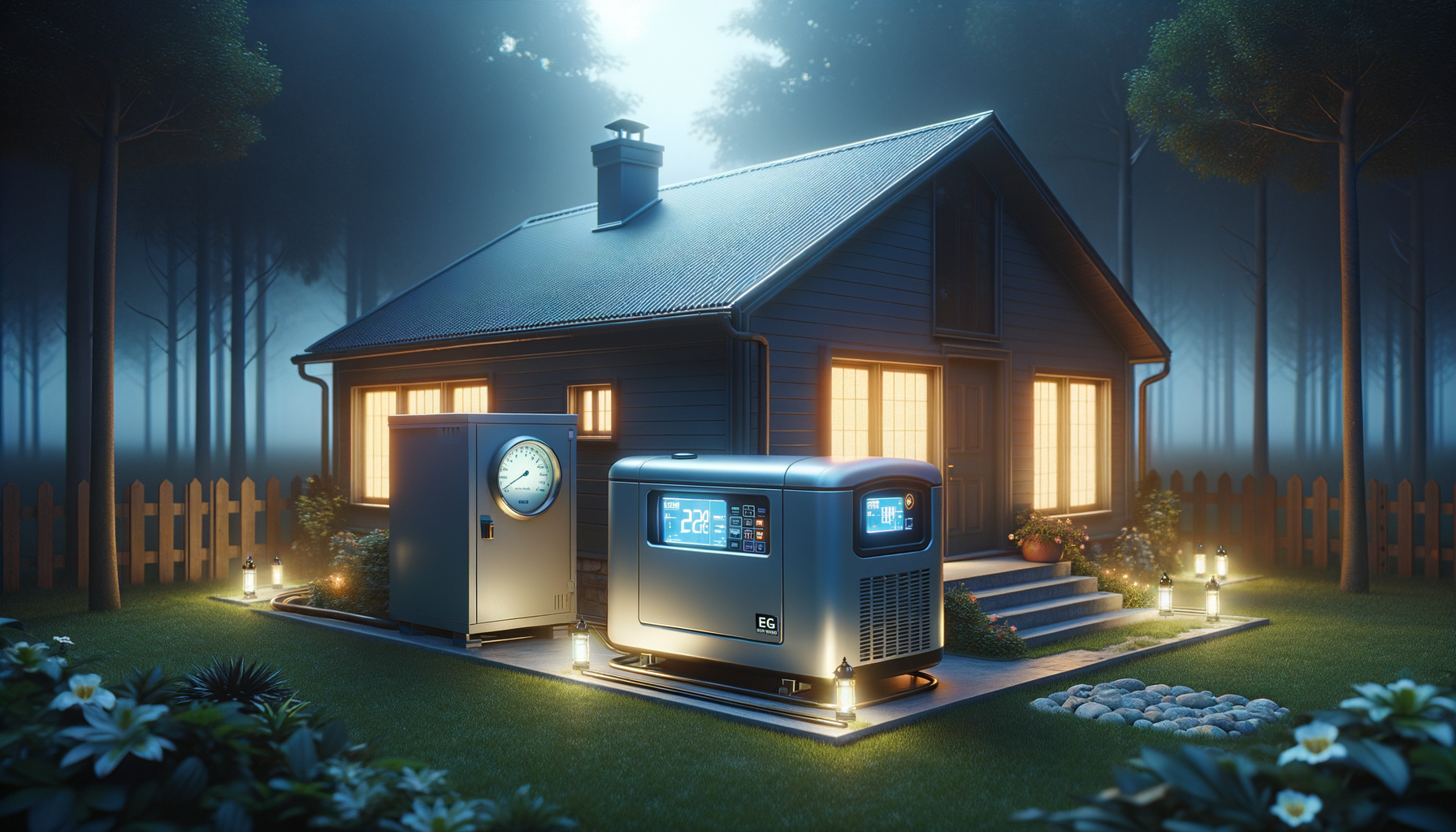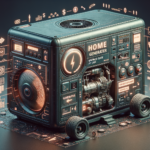Understanding Home Generators: A Reliable Power Source
Home generators have become an essential part of modern living, especially in areas prone to power outages. These devices offer a reliable backup power source, ensuring that homes remain functional during unexpected electricity interruptions. Generators come in various types, including portable and standby models, each designed to meet specific needs. Portable generators are typically used for temporary power supply, often during camping trips or in emergencies. They are easy to transport and set up, making them a flexible option for those who need power on the go.
On the other hand, standby generators are installed permanently and automatically take over during a power outage. They are connected directly to the home’s electrical system and powered by natural gas or propane. This type of generator is ideal for those who require an uninterrupted power supply, such as homes with medical equipment or businesses that cannot afford downtime. The choice between portable and standby generators depends largely on individual needs and budget considerations.
Considering the increasing frequency of extreme weather events, investing in a home generator is not just a convenience but a necessity. It provides peace of mind, knowing that essential appliances and systems will continue to operate, from heating and cooling systems to refrigerators and security systems. As technology advances, generators are becoming more efficient and environmentally friendly, offering a sustainable solution for home energy needs.
Cost Considerations: Balancing Budget and Benefits
When contemplating the purchase of a home generator, cost is a significant factor. The price of generators can vary widely based on type, capacity, and brand. Portable generators are generally more affordable, with prices ranging from a few hundred to a few thousand dollars. They are a cost-effective choice for those who need occasional power backup. However, it’s important to factor in the cost of fuel and maintenance, as these can add up over time.
Standby generators, while more expensive initially, offer greater convenience and reliability. The cost of a standby generator can range from several thousand to over ten thousand dollars, including installation. This higher upfront investment is often justified by the seamless power transition they provide during outages. Additionally, standby generators can increase property value, making them an attractive option for homeowners looking to invest in their property’s long-term resilience.
To make an informed decision, potential buyers should consider their specific power needs, frequency of outages in their area, and long-term savings on energy costs. Consulting with a professional can also provide valuable insights into the most suitable generator type and capacity for a particular home. Ultimately, the right choice balances initial costs with the benefits of uninterrupted power supply and increased home value.
Installation and Maintenance: Ensuring Optimal Performance
Proper installation and maintenance are crucial to the effective operation of a home generator. For portable generators, installation is straightforward, often requiring only a suitable location and connection to the necessary appliances. However, users must ensure that the generator is used safely, following manufacturer guidelines to prevent hazards such as carbon monoxide poisoning.
Standby generators, in contrast, require professional installation. This process involves connecting the generator to the home’s electrical system and fuel supply, necessitating compliance with local building codes and regulations. Professional installation ensures that the generator operates safely and efficiently, providing reliable power when needed.
Regular maintenance is essential for both types of generators to ensure longevity and optimal performance. This includes routine checks of oil and fuel levels, battery condition, and electrical connections. Many manufacturers offer maintenance plans, which can be a worthwhile investment for homeowners who prefer professional oversight. Keeping a generator in good working condition not only extends its lifespan but also ensures that it will function properly during emergencies.
Environmental Impact: Choosing Sustainable Options
As environmental concerns grow, the impact of home generators on the environment has become a focal point for many consumers. Traditional generators, particularly those powered by gasoline or diesel, can contribute to air pollution and greenhouse gas emissions. However, advancements in generator technology are providing more sustainable options.
Natural gas and propane generators are considered cleaner alternatives, emitting fewer pollutants compared to gasoline or diesel models. These fuels are also more efficient, providing longer run times and reducing the frequency of refueling. In addition, some generators are now equipped with eco-mode features, which adjust the engine speed to match the load, thereby conserving fuel and reducing emissions.
For those seeking the most environmentally friendly option, solar-powered generators are an excellent choice. Although they may not provide the same power capacity as traditional generators, they are ideal for smaller energy needs and offer a renewable energy source. As solar technology continues to advance, these generators are becoming more efficient and affordable, appealing to environmentally conscious consumers.
Conclusion: Making the Right Choice for Your Home
Investing in a home generator is a decision that requires careful consideration of various factors, including cost, installation, maintenance, and environmental impact. By understanding the different types of generators and their respective benefits, homeowners can make an informed choice that aligns with their specific needs and budget.
Whether opting for a portable generator for occasional use or a standby generator for continuous power supply, the key is to select a model that offers reliability, efficiency, and value. As technology evolves, generators are becoming more environmentally friendly and cost-effective, making them an increasingly attractive option for homeowners.
Ultimately, a home generator provides peace of mind, ensuring that essential systems remain operational during power outages. By choosing a generator that meets their needs, homeowners can enjoy greater control over their energy use and contribute to a more sustainable future.








